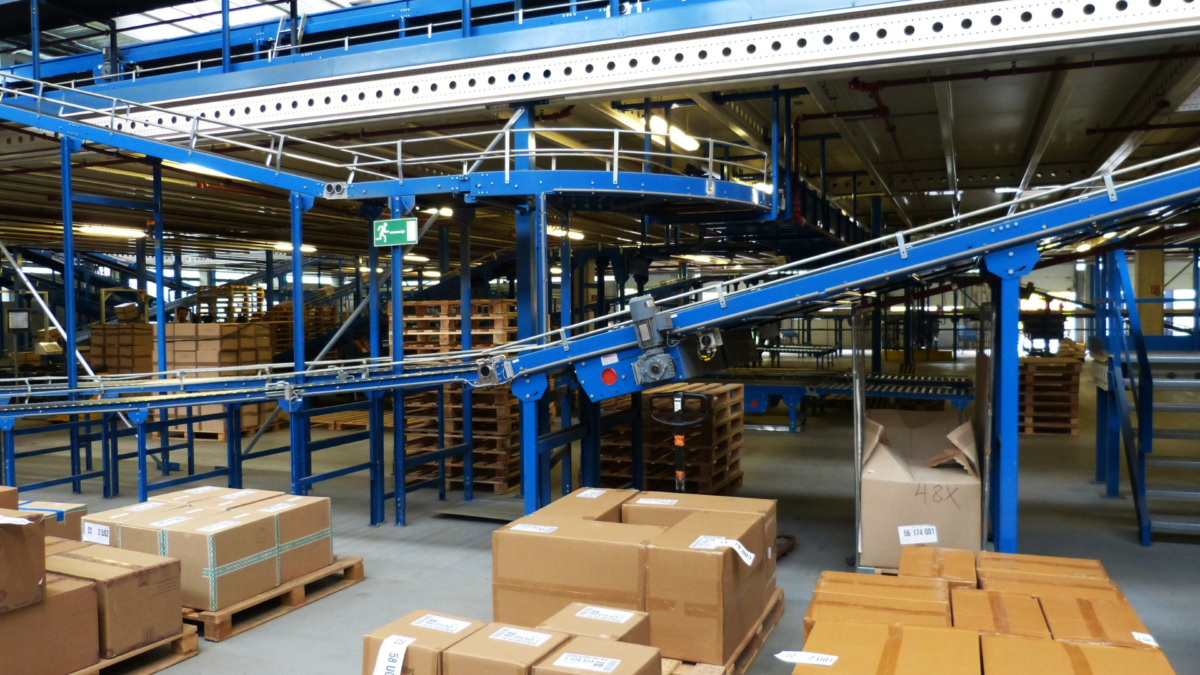In the fast-paced world of logistics, utilizing the right software can make a significant difference in efficiency and cost management. The best logistics business software streamlines operations optimizes supply chain processes, and enhances communication across all stakeholders. With many options available, businesses must identify tools that fit their specific needs.
Investing in logistics software allows companies to automate tasks, track shipments in real-time, and manage inventory effectively. This not only reduces operational errors but also improves customer satisfaction by providing better service delivery. A clear understanding of available software solutions can empower businesses to make informed decisions.
As the logistics industry continues to evolve, the integration of advanced technologies is essential. From cloud-based solutions to AI-driven analytics, today’s software options offer unprecedented opportunities for growth and efficiency. Exploring the top choices available can lead to transformative results for logistics operations.
Understanding Logistics Business Software
Logistics business software supports companies in managing supply chain operations efficiently. It encompasses various functions, including inventory management, transportation management, and order fulfillment.
Key features often found in logistics software include:
- Real-time tracking: Users can monitor shipments and deliveries.
- Inventory control: This ensures accurate stock levels and reduces wastage.
- Route optimization: It helps in planning efficient delivery routes, saving time and costs.
Different types of logistics software cater to specific needs:
- Transportation Management Systems (TMS): Focus on the transportation aspect of logistics.
- Warehouse Management Systems (WMS): Help in managing warehouse operations and inventory.
- Supply Chain Management (SCM) Software: Provides a holistic approach to managing the entire supply chain.
When selecting logistics software, consider factors such as:
- Scalability: The ability to grow with the business.
- Integration: Compatibility with existing systems is crucial.
- User interface: A user-friendly design enhances productivity.
By leveraging logistics business software, companies can streamline operations, reduce costs, and improve customer satisfaction. Investing in the right software leads to better decision-making and operational efficiency.
Key Features of Top Logistics Software
Top logistics software equips businesses with essential tools for efficient supply chain management. Key features optimize operations and enhance productivity across various logistics functions.
Inventory Management
Effective inventory management is crucial for logistics. This feature provides real-time tracking of stock levels, helping businesses maintain optimal inventory without overstocking or stockouts.
Automated alerts for low stock levels are vital, enabling timely replenishment. Additionally, cycle counting and forecasting tools assist in predicting demand patterns.
Strong inventory valuation methods, such as FIFO and LIFO, ensure accurate financial reporting. Integration with other systems allows seamless data flow, enhancing overall management efficiency.
Warehouse Operations
Warehouse operations feature tools designed to streamline warehouse efficiencies. This includes provisions for layout optimization and improved picking processes.
Automation features, such as RFID tracking and barcode scanning, expedite inventory management. They minimize errors and reduce labor costs.
The software should also allow for efficient space utilization through tools like slotting optimization. This enhances retrieval speeds and overall warehouse productivity, making it essential for any logistics firm.
Transportation Management
Transportation management systems (TMS) plan and execute the movement of goods efficiently. This feature encompasses route optimization and real-time tracking of shipments.
Cost analysis tools help businesses evaluate carrier performance and freight expenses. Real-time visibility contributes to enhanced customer satisfaction through better delivery estimates.
Integration with GPS and mapping technologies can optimize routes and reduce transportation costs. Comprehensive management capabilities are essential for maintaining a competitive edge in logistics.
Order Processing
Order processing capabilities streamline the order lifecycle from receipt to delivery. This feature automates order entry, reducing manual input errors.
The software should facilitate quick invoicing and payment processing, enhancing cash flow. This includes tracking order status, which improves customer communication and satisfaction.
Integrating order management with inventory and shipping data allows precise order fulfillment and real-time updates. It is a cornerstone of efficient logistics operation.
Customer Relationship Management
Customer relationship management (CRM) within logistics software enhances customer engagement and satisfaction. This feature provides a centralized database for customer interactions, preferences, and feedback.
Effective CRM tools allow businesses to manage leads and automate follow-up communications. This builds stronger customer relationships and loyalty.
Analytics capabilities in CRM systems help companies understand customer behavior, which can inform personalized marketing strategies. Effective use of CRM tools significantly improves customer retention.
Analytics and Reporting
Analytics and reporting features play a critical role in data-driven decision-making. Real-time analytics provide actionable insights into operations, enabling businesses to identify trends and inefficiencies.
Customizable dashboards can simplify the visualization of critical data points. Key Performance Indicators (KPIs), such as order accuracy and delivery times, are essential for performance measurement.
The software should enable detailed reporting, assisting in strategic planning. Efficient analysis supports continuous improvement in logistics processes.
Integration Capabilities
Integration capabilities ensure seamless communication between logistics software and other business applications. This feature enhances data sharing and reduces redundancies.
The ability to connect with ERP, CRM, and e-commerce platforms is vital. Such integration supports a cohesive ecosystem that improves operational efficiency.
Real-time data synchronization across various systems allows for informed decision-making. Strong integration capabilities are a must-have for comprehensive logistics management.
Security and Compliance
Security and compliance tools protect sensitive data and ensure regulatory adherence. This feature includes encryption for data security and user access controls to prevent unauthorized access.
Compliance tracking ensures adherence to regulations, such as GDPR and industry standards. Regular security audits and updates safeguard against potential threats.
A focus on security not only protects company assets but also instills customer confidence. Robust security features are essential for logistics software to maintain a trustworthy reputation.
Evaluating Your Logistics Software Needs
Determining the appropriate logistics software involves a thorough examination of several critical aspects. Business size and complexity, specific logistics challenges, and integration needs all play significant roles in the decision-making process.
Assessing Business Size and Complexity
The size and complexity of a logistics operation significantly influence software needs. Smaller businesses may benefit from simple, cost-effective solutions that cover basic functionalities like tracking and inventory management.
Conversely, larger enterprises often require comprehensive systems that support multiple locations, complex supply chains, and advanced features such as predictive analytics and reporting.
When evaluating options, organizations should contemplate the following factors:
- Number of Users: More users may necessitate scalable solutions.
- Volume of Transactions: High transaction volumes demand more robust software.
- Geographic Reach: Global operations often need multi-language and multi-currency capabilities.
Identifying Key Logistics Challenges
Understanding specific logistics challenges is crucial for selecting the right software. Common difficulties may include inefficient warehousing, delays in shipping, or difficulties with order fulfillment.
By pinpointing these challenges, organizations can identify required features. For instance, if inventory accuracy is a concern, software with real-time tracking and automated updates becomes essential.
Key factors to evaluate include:
- Delivery Performance: Delays or irregularities in deliveries.
- Inventory Visibility: Ability to monitor stock levels accurately.
- Customer Satisfaction: Impact of logistics issues on service levels.
Determining Integration Requirements
Integration capabilities are vital when choosing logistics software. A system that seamlessly connects with existing applications ensures streamlined operations and data accuracy.
Organizations should assess their current tools, such as ERP systems, CRM platforms, and accounting software. Compatibility with these tools can facilitate better data flow and efficiency.
Consider the following integration aspects:
- API Support: Availability of APIs for third-party connections.
- Data Migration: Ease of transfer from existing systems.
- User Interface Consistency: Familiarity across platforms to reduce the learning curve.
This focused approach enhances operational efficiency and supports strategic goals.
Industry-Specific Solutions
Different sectors have unique logistics challenges that can be addressed by tailored software solutions. Below are specific software features that cater to the needs of various industries including Retail, Manufacturing, Third-Party Logistics, and Courier services.
Retail and E-Commerce
Retail and e-commerce businesses require software that streamlines inventory management, order processing, and customer relationship management. Key features should include real-time inventory tracking, integrated point-of-sale systems, and an easy-to-navigate e-commerce platform.
Important functionalities:
- Inventory Optimization: Helps maintain optimal stock levels and reduces overstock or stockouts.
- Order Management System (OMS): Automates order processing from multiple sales channels.
- Customer Insights: Analyzes purchasing behavior to refine marketing strategies.
These capabilities enhance efficiency and improve customer satisfaction.
Manufacturing
Manufacturers need logistics software that can better manage supply chains, production schedules, and delivery timelines. This sector benefits from integrations with Enterprise Resource Planning (ERP) systems to coordinate various functions seamlessly.
Key components include:
- Supply Chain Visibility: Tracks materials from suppliers to production lines.
- Production Scheduling: Aligns manufacturing processes with logistics to minimize delays.
- Quality Control: Monitors product quality at various stages to uphold standards.
Efficient management leads to reduced costs and improved product quality.
Third-Party Logistics (3PL)
3PL companies specialize in providing logistics services for other businesses. They require flexible systems that support inventory management, shipment tracking, and customer service.
Critical features include:
- Multi-Client Management: Supports operations for multiple clients from a single platform.
- Transportation Management System (TMS): Optimizes routing and scheduling for efficient deliveries.
- Reporting and Analytics: Offers insights into performance metrics for informed decision-making.
These tools enable 3PL providers to enhance service levels for their clients.
Courier and Parcel Delivery
Courier and parcel delivery services focus on rapid shipment and customer satisfaction. Software for this sector must facilitate real-time tracking, route optimization, and automated delivery notifications.
Essential functionalities:
- Real-Time Tracking: Provides transparency for customers and improves operational efficiency.
- Dynamic Routing: Automatically adjusts delivery routes based on traffic and delays.
- Customer Notifications: Sends automated updates regarding delivery status.
These features ensure that courier services can meet high customer expectations consistently.
Deployment Options for Logistics Software
Choosing the right deployment option for logistics software is crucial for meeting business needs and operational efficiency. Various models offer unique benefits and challenges, influencing factors such as cost, scalability, and accessibility.
Cloud-Based Solutions
Cloud-based logistics software has gained popularity due to its flexibility and scalability. Businesses can access these solutions via the Internet, significantly reducing the need for extensive on-site hardware.
Key Features:
- Cost-Effective: Lower upfront costs due to subscription models.
- Accessibility: Accessible from anywhere, facilitating remote work.
- Scalability: Easy to scale services up or down based on business needs.
Potential challenges include reliance on internet connectivity and data security concerns. Companies must assess their IT infrastructure and ensure compliance with regulations regarding data protection.
On-Premise Software
On-premise logistics software involves installation on the company’s hardware and infrastructure. This option gives organizations control over their systems and data.
Key Features:
- Customizability: Organizations can tailor the software to specific needs.
- Data Security: Enhanced control over data, reducing external risks.
- Performance: Typically offers higher performance with no reliance on internet speed.
However, this model requires significant upfront investment in hardware and ongoing maintenance. Companies must also anticipate costs associated with updates and potential scalability issues as they grow.
Hybrid Models
Hybrid models combine aspects of both cloud-based and on-premise solutions, offering a balanced approach. Businesses can maintain certain critical processes on-site while utilizing cloud resources for flexibility.
Key Features:
- Flexibility: Allows organizations to choose where to run specific functions.
- Cost Management: Optimizes costs by leveraging cloud resources where profitable.
- Resilience: Reduces risk of downtime by maintaining some operations on-premise.
Implementing a hybrid model can be complex, necessitating careful planning and integration to ensure seamless operation across platforms. This solution is ideal for businesses looking for the best of both worlds.
Cost Considerations and ROI
Assessing the cost of logistics business software requires an understanding of pricing models, total costs involved, and potential returns. Each factor significantly impacts budget planning and sustainability.
Software Pricing Models
Logistics software typically employs various pricing models. These include subscription-based pay-per-use and one-time purchase options.
- Subscription-Based: Users pay a recurring fee, often monthly or annually. This model offers regular updates and support.
- Pay-Per-Use: Suitable for companies with fluctuating needs, this model charges based on usage metrics.
- One-Time Purchase: A lump sum payment for a perpetual license. This may lead to lower long-term costs but can become expensive with updates and support.
Each model has unique benefits and considerations that influence a company’s expenditures.
Total Cost of Ownership
Total Cost of Ownership (TCO) encompasses initial software costs, ongoing fees, and indirect expenses like training and hardware. Key components include:
- Initial Costs: This includes licensing fees, installation, and any customization needed for specific business needs.
- Ongoing Costs: Regular maintenance, updates, and support fees can accumulate over time.
- Indirect Costs: Employee training and potential downtime during implementation can affect productivity.
A comprehensive TCO analysis helps organizations gauge the full financial impact of a software solution over its lifecycle.
Calculating Return on Investment
Calculating Return on Investment (ROI) for logistics software involves comparing the financial benefits to the costs incurred. Key steps include:
- Identify Costs: Include initial and recurring costs from TCO analysis.
- Estimate Benefits: Benefits may encompass improved efficiency, cost savings, and enhanced customer satisfaction.
- ROI Formula: ROI can be calculated with the formula:
[ text{ROI} = frac{text{Net Profit}}{text{Total Investment}} times 100 ]
Positive ROI suggests that the software provides more value than its associated costs, validating the investment decision.
Vendor Selection Process
Selecting the right logistics software vendor requires careful consideration of several critical steps. This involves creating a shortlist of potential candidates, requesting demos, checking references, and negotiating terms effectively.
Creating a Shortlist
Begin by identifying key requirements specific to the logistics operations. This includes assessing functionalities like inventory management, order tracking, and reporting capabilities.
Next, conduct market research to find vendors specializing in logistics software. Compile a list of at least five candidates that meet the specified criteria.
Leveraging online resources, industry forums, and referrals from trusted contacts can provide valuable insights. Creating a scoring system based on priorities helps in narrowing the choices systematically.
Requesting Demos and Trials
After narrowing down the shortlist, request product demos and trial versions. A demo gives insight into the software’s user interface and key features.
Ensure that the demonstrations are tailored to the company’s specific needs. Asking targeted questions during the demo process will help identify how well the software meets operational demands.
Trials enable the team to test functionalities in a live environment. It’s crucial to involve users from various departments to gather diverse feedback, which will inform the decision-making process.
Checking References and Reviews
Gathering feedback from current or past users is essential in assessing a vendor’s reliability. Request references directly from the vendor and contact them for insights.
Additionally, explore online reviews and ratings on reputable software comparison websites. Look for patterns in feedback that highlight strengths and weaknesses in the software or vendor.
Pay special attention to reviews concerning customer service and support. A vendor’s responsiveness can greatly affect operational continuity, making this a vital consideration.
Negotiating with Vendors
Once the final candidates are identified, engaging in negotiation is necessary. Start by discussing pricing structures, including any hidden fees.
Evaluate the terms of service and seek clarity on the support and maintenance provided. Request options for customization or scaling the software as the business grows.
Ensure contractual obligations are clearly defined, especially concerning data security and compliance. A well-negotiated agreement will provide a solid foundation for a successful partnership in logistics management.
Implementation and Training
Successful implementation of logistics business software requires careful planning and effective staff training. These elements are critical for maximizing software benefits and ensuring a smooth transition.
Planning for Implementation
Planning is essential for a successful software rollout. Businesses should start by assessing their current processes to identify needs and potential challenges. A dedicated project team should be formed, comprising IT staff, management, and end users.
Creating a detailed implementation timeline helps set clear expectations. Milestones, such as software installation and testing phases, should be established. Collaboration with vendors can facilitate a better understanding of technical requirements and necessary integrations with existing systems.
Checklist for Implementation Planning:
- Assess current logistics operations.
- Form a project team.
- Create a detailed implementation timeline.
- Ensure vendor support for integration.
Training Staff on New Software
Training staff is crucial to ensure they effectively use the new system. Companies should develop a structured training program that combines various methods, such as hands-on workshops, online tutorials, and written documentation.
Tailoring training sessions to different user roles is vital. For instance, logistics managers may require in-depth training on analytical features, while warehouse staff need to focus on basic input and tracking functionalities.
Training Methods:
- Workshops: Interactive sessions for hands-on experience.
- Online Resources: Video tutorials and user manuals.
- Role-Based Training: Customized sessions for different user needs.
Change Management
Change management strategies help mitigate resistance and foster a positive attitude toward new software. Communicating the benefits of the software to staff is essential. Highlighting how it improves efficiency or eases workloads can motivate buy-in.
Involving employees in the implementation process also encourages acceptance. Regular feedback sessions can identify concerns and address them promptly.
Change Management Steps:
- Communicate benefits clearly.
- Involve users in decision-making.
- Gather and address feedback continually.
These steps create an environment conducive to successful software adoption.
Software Maintenance and Support
Software maintenance and support are crucial for the longevity of logistics business software. Regular updates and troubleshooting help maximize performance and reliability.
Key aspects include:
- Updates: Ensure the software remains compatible with new technologies and regulations.
- Bug Fixes: Address issues promptly to minimize disruption.
- User Support: Provide assistance through help desks, FAQs, and manuals.
A reliable support service should offer:
| Feature | Description |
| 24/7 Availability | Support should be accessible at all times. |
| Training Programs | Regular training helps users maximize software capabilities. |
| Feedback Channels | Users should have avenues to report issues or suggest improvements. |
Effective maintenance strategies include scheduled audits and performance reviews. These actions identify areas for improvement and ensure the software adapts to changing business needs.
Investing in software support not only enhances user experience but also optimizes operational efficiency. Continuous support contributes to smoother workflows and reduced downtime.
Trends and Future of Logistics Software
The logistics industry is rapidly evolving due to technological advancements. Companies are increasingly adopting cloud-based solutions for improved flexibility and scalability.
Key Trends:
- Automation: Robotics and AI are streamlining warehousing and delivery processes.
- Data Analytics: Enhanced decision-making through predictive analytics is becoming essential.
- Integration: Software that integrates with IoT devices offers real-time tracking and visibility.
Emerging technologies, such as blockchain, are also playing a crucial role. They provide security and transparency in transactions, reducing fraud risks.
Future Outlook:
Flexibility and adaptability will be vital. As market demands change, logistics software must evolve to accommodate diverse customer needs.
Sustainability will influence software development. Companies will seek solutions that optimize routes, reduce emissions, and enhance resource management.
Investment in training will increase. Logistics firms will need employees who understand advanced software systems to leverage full capabilities.
The trend towards collaboration software is evident, facilitating better communication between stakeholders. As partnerships grow, integrated platforms will become essential.
Companies must stay ahead of these trends to remain competitive in the logistics landscape. Embracing innovative solutions will be key to future success.











